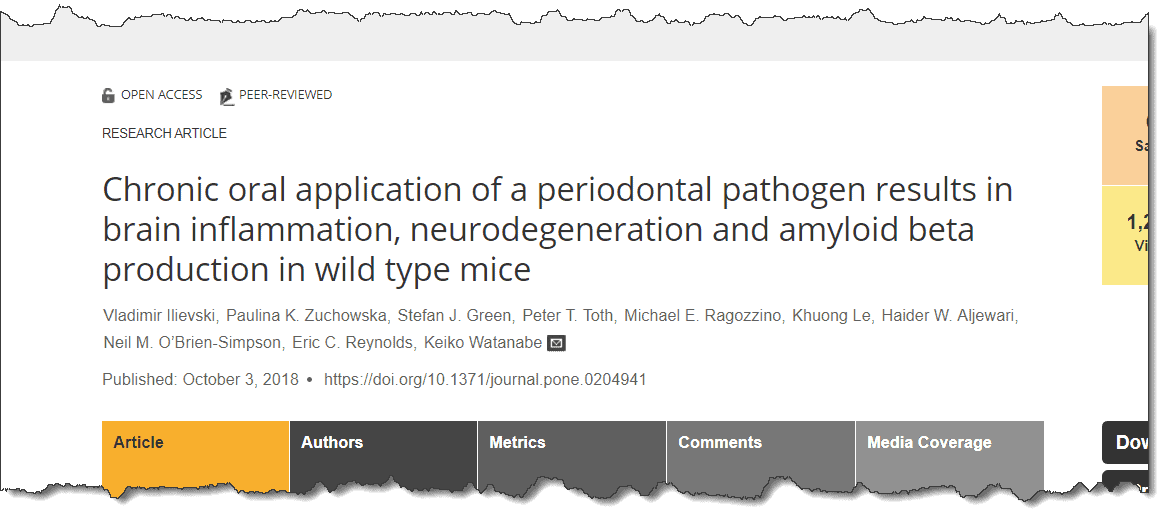
Doing this one simple thing in the bathroom can save your mind and memory
—-Important Message From Our Sponsor—-
Men are using the velcro method to reverse “rockiness” problems forever

The truth is, this velcro method was invented accidentally…
A guy named Georges De Mestrel invented it by chance…
And now it turns out that it’s a unique cure for sexual problems in men.
Here’s how to use the “velcro method” tonight to get a powerful stiffy, even if it’s been years…
———-
Weird oral health trick that prevents dementia and Alzheimer’s
Currently, Big Pharma says Alzheimer’s isn’t curable…
I’ve had friends and relatives with Alzheimer’s, and it’s not a fate I would wish on anyone — especially myself.
But I’m always digging up research on how to PREVENT Alzheimer’s and dementia…and possibly reverse it (more on that later)…

This is stuff your doctor isn’t likely to tell you about, because they get most of their info from Big Pharma and there is really no money for Big Pharma in prevention.
(Docs are also usually CRUSHED for time — so they don’t usually have enough time to tell you this stuff anyway)
This study is interesting… because it means there is a SMALL step you can take — that you should be doing anyway — that can help prevent Alzheimer’s.
What goes on in your mouth affects your brain
This study from the University of Illinois at Chicago studied the effects of periodontal (gum disease) on brain function.
They used mice in their study — because giving humans Alzheimer’s is not the best medical practice.
In this study they used wild mice, not mice that were “primed” to get Alzheimer’s.
This is important as it will more closely mirror the results of gum disease in the general human population.
“Using a wild-type mouse model added strength to our study because these mice were not primed to develop the disease, and use of this model gives additional weight to our findings that periodontal bacteria may kick-start the development of Alzheimer’s,” Watanabe said.
What the researchers did was put bacteria in the mice’s mouths in order to trigger periodontal disease.
They applied bacteria to the gums of mice over a period of 22 weeks in order to create gum disease in the animals.
In the study, researchers established chronic periodontitis, which is characterized by soft tissue damage and bone loss in the oral cavity, in 10 mice. Another 10 mice served as the control group.
Then they measured the brain function of the mice and compared the control group to the gum disease group to see the results.
The mice with the gum disease had MUCH HIGHER amounts of brain inflammation and amyloid beta (which is associated with Alzeihmer’s).
Brain inflammation is a huge problem, because it triggers so many other diseases.
And here’s the reality: if the mice had brain inflammation from the gum disease they probably also had systemic inflammation in the rest of their bodies as well…
…which can lead to diabetes, heart disease, and erections problems.
Mice chronically exposed to the bacteria had significantly higher amounts of accumulated amyloid beta as well as more brain inflammation and fewer intact neurons because of degeneration.
This study shows that bacteria from your mouth can TRAVEL to your brain, potentially causing Alzheimer’s and dementia.
That’s a crazy direct correlation and an important one to know about.
“Our data not only demonstrate the movement of bacteria from the mouth to the brain, but also that chronic infection leads to neural effects similar to Alzheimer’s,” Watanabe said.
Taking care of your mouth helps prevent brain disease
The basic takeaway here is that taking care of your mouth health is important to taking care of your overall health.
What happens in your mouth doesn’t stay in your mouth — it travels to the rest of your body.
“Oral hygiene is an important predictor of disease, including diseases that happen outside the mouth,” she said. “People can do so much for their personal health by taking oral health seriously.”
The basics of taking care of your mouth are simple.
Floss, brush, and go to the dentist to have your teeth professionally cleaned every 6 months.
It’s worth it. Flossing in particular is a habit that is important to pick up for overall gum health.
The review showed that people who brush and floss regularly have less gum bleeding compared to toothbrushing alone
But lots of people don’t like to floss. I get that, it’s a bit of a pain.
If you really hate flossing, then using a water flosser can help to keep your gums healthy as well.
Keeping your mouth healthy is a small step you can take to prevent MAJOR problems later on in life.
—-Important Message—-
Reverse brain aging with the Kraepelin Method — works in 45 seconds
Emil Kraepelin was the first scientist to discover how to reverse brain aging…

But his work has been ignored for almost a century.
That’s why I’ve named this method after him — it works on the root cause of brain aging to fix it naturally and safely…
And it only takes 45 seconds to start working. And it’s so simple, it will just become part of your daily routine.
Discover how to reverse brain aging in 45 seconds with the Kraepelin Method — keep a young mind and memory decades longer.
———-
